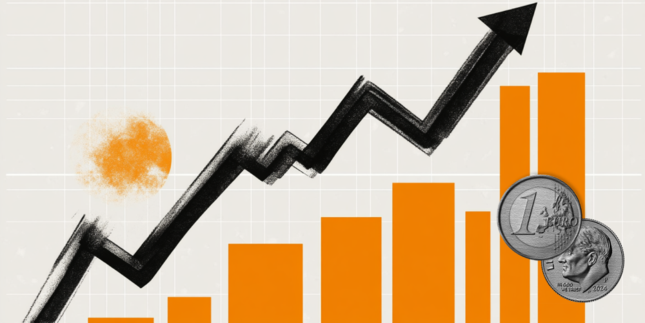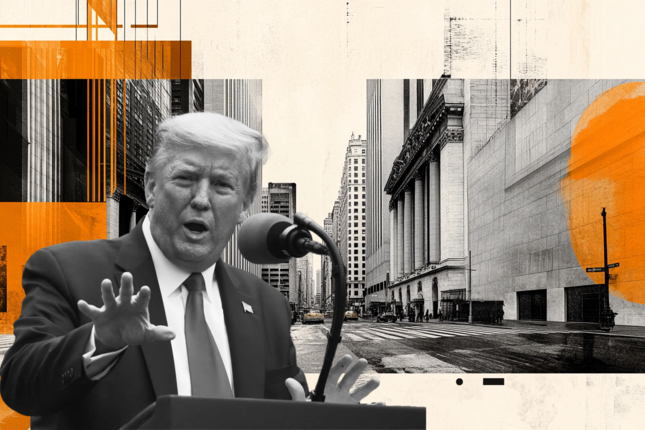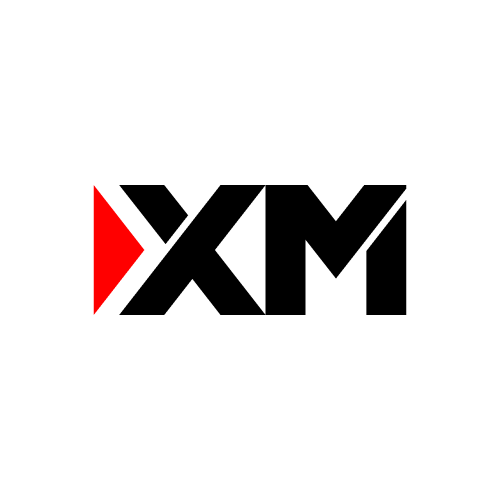- EUR/USD gains ground to around 1.0450 in Friday’s early European session, adding 0.30% on the day.
- Trump said he will demand lower interest rates.
- ECB is expected to cut the deposit rate on January 30.
The EUR/USD pair attracts some buyers to 1.0450 during the early Asian session on Friday, bolstered by the weakening of the US Dollar (USD). The preliminary reading of the HCOB Purchasing Managers Index (PMI) for January from the Eurozone and Germany will be released later on Friday. On the US docket, flash S&P PMI for January will take center stage.
US President Donald Trump’s remarks at the World Economic Forum in Davos drag the USD lower against a basket of major currencies. Trump said late Thursday that he wants to see interest rates drop immediately, and likewise, they should be dropping all over the world.
"It seems like the markets are more concerned about rate cuts and any kind of greater indicator that there'll be more rate cuts,” said David Eng, Investment Adviser at Sonora Wealth Group in Vancouver.
Across the pond, recent comments from the European Central Bank (ECB) policymakers indicated that a rate cut was likely. ECB Croatian central bank chief Boris Vujcic said earlier this week that market expectations for ECB interest rate cuts are reasonable and risks around the inflation outlook are broadly balanced.
Meanwhile, ECB President Christine Lagarde emphasized on Wednesday that the central bank is “not overly concerned” about the risk of inflation from abroad and will continue to reduce interest rates at a gradual pace. Markets have priced in nearly 96% odds the ECB will reduce the rates at the upcoming meeting.
Euro FAQs
The Euro is the currency for the 19 European Union countries that belong to the Eurozone. It is the second most heavily traded currency in the world behind the US Dollar. In 2022, it accounted for 31% of all foreign exchange transactions, with an average daily turnover of over $2.2 trillion a day. EUR/USD is the most heavily traded currency pair in the world, accounting for an estimated 30% off all transactions, followed by EUR/JPY (4%), EUR/GBP (3%) and EUR/AUD (2%).
The European Central Bank (ECB) in Frankfurt, Germany, is the reserve bank for the Eurozone. The ECB sets interest rates and manages monetary policy. The ECB’s primary mandate is to maintain price stability, which means either controlling inflation or stimulating growth. Its primary tool is the raising or lowering of interest rates. Relatively high interest rates – or the expectation of higher rates – will usually benefit the Euro and vice versa. The ECB Governing Council makes monetary policy decisions at meetings held eight times a year. Decisions are made by heads of the Eurozone national banks and six permanent members, including the President of the ECB, Christine Lagarde.
Eurozone inflation data, measured by the Harmonized Index of Consumer Prices (HICP), is an important econometric for the Euro. If inflation rises more than expected, especially if above the ECB’s 2% target, it obliges the ECB to raise interest rates to bring it back under control. Relatively high interest rates compared to its counterparts will usually benefit the Euro, as it makes the region more attractive as a place for global investors to park their money.
Data releases gauge the health of the economy and can impact on the Euro. Indicators such as GDP, Manufacturing and Services PMIs, employment, and consumer sentiment surveys can all influence the direction of the single currency. A strong economy is good for the Euro. Not only does it attract more foreign investment but it may encourage the ECB to put up interest rates, which will directly strengthen the Euro. Otherwise, if economic data is weak, the Euro is likely to fall. Economic data for the four largest economies in the euro area (Germany, France, Italy and Spain) are especially significant, as they account for 75% of the Eurozone’s economy.
Another significant data release for the Euro is the Trade Balance. This indicator measures the difference between what a country earns from its exports and what it spends on imports over a given period. If a country produces highly sought after exports then its currency will gain in value purely from the extra demand created from foreign buyers seeking to purchase these goods. Therefore, a positive net Trade Balance strengthens a currency and vice versa for a negative balance.
Information on these pages contains forward-looking statements that involve risks and uncertainties. Markets and instruments profiled on this page are for informational purposes only and should not in any way come across as a recommendation to buy or sell in these assets. You should do your own thorough research before making any investment decisions. FXStreet does not in any way guarantee that this information is free from mistakes, errors, or material misstatements. It also does not guarantee that this information is of a timely nature. Investing in Open Markets involves a great deal of risk, including the loss of all or a portion of your investment, as well as emotional distress. All risks, losses and costs associated with investing, including total loss of principal, are your responsibility. The views and opinions expressed in this article are those of the authors and do not necessarily reflect the official policy or position of FXStreet nor its advertisers. The author will not be held responsible for information that is found at the end of links posted on this page.
If not otherwise explicitly mentioned in the body of the article, at the time of writing, the author has no position in any stock mentioned in this article and no business relationship with any company mentioned. The author has not received compensation for writing this article, other than from FXStreet.
FXStreet and the author do not provide personalized recommendations. The author makes no representations as to the accuracy, completeness, or suitability of this information. FXStreet and the author will not be liable for any errors, omissions or any losses, injuries or damages arising from this information and its display or use. Errors and omissions excepted.
The author and FXStreet are not registered investment advisors and nothing in this article is intended to be investment advice.
Recommended content
Editors’ Picks

EUR/USD maintains its constructive tone near 1.1400
EUR/USD remains well bid in the proximity of the 1.1400 hurdle on Thursday, deriving support from the renewed selling pressure in the US Dollar as investors continue to assess the ongoing absence of further progress in the US-China trade conflict.

GBP/USD appears sidelined around 1.3300, USD remains offered
GBP/USD holds its ground near the 1.3300 mark on Thursday amid a strong rebound in the broader risk-linked universe, all against tha backdrop of renewed weakness around the Greenback and steady uncertainty over US–China trade relations.

Gold eases from tops, back near $3,300
Gold manages to regain composure and reverses two daily drops in a row, currently approaching the $3,300 mark per troy ounce following the earlier bull run to the boundaries of $3,370. Furthermore, XAU/USD attracted safe-haven flows amid renewed concerns of a US-China trade flare-up.

Bitcoin Price corrects as increased profit-taking offsets positive market sentiment
Bitcoin (BTC) is facing a slight correction, trading around $92,000 at the time of writing on Thursday after rallying 8.55% so far this week. Institutional demand remained strong as US spot Exchange Traded Funds (ETFs) recorded an inflow of $916.91 million on Wednesday.

Five fundamentals for the week: Traders confront the trade war, important surveys, key Fed speech Premium
Will the US strike a trade deal with Japan? That would be positive progress. However, recent developments are not that positive, and there's only one certainty: headlines will dominate markets. Fresh US economic data is also of interest.

The Best brokers to trade EUR/USD
SPONSORED Discover the top brokers for trading EUR/USD in 2025. Our list features brokers with competitive spreads, fast execution, and powerful platforms. Whether you're a beginner or an expert, find the right partner to navigate the dynamic Forex market.


